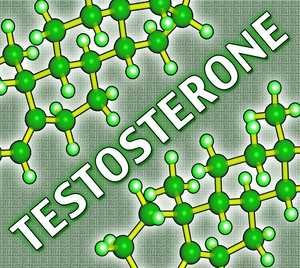Introduction to Andropause
Andropause, often referred to as male menopause, is a condition associated with a gradual decline in testosterone levels in aging men. While not as universally recognized or discussed as menopause in women, andropause can significantly affect the quality of life for many American men. This article delves into how andropause influences self-esteem among American males and offers insights into managing its effects.
Understanding Andropause
Andropause typically begins in men in their late 40s or early 50s, though the onset can vary widely. Symptoms may include fatigue, decreased libido, mood swings, and a general decline in physical vigor. Unlike the abrupt hormonal changes experienced by women during menopause, andropause is characterized by a more gradual shift, which can make it harder to identify and address.
The Link Between Andropause and Self-Esteem
The symptoms of andropause can have a profound impact on a man's self-esteem. Physical changes such as decreased muscle mass and increased body fat can lead to dissatisfaction with one's appearance. Moreover, the decline in sexual desire and performance can affect intimate relationships, further eroding self-confidence. Emotional symptoms like irritability and depression can exacerbate feelings of low self-worth, creating a vicious cycle that is difficult to break.
Psychological Impact on American Men
In American culture, where masculinity is often tied to physical strength, sexual prowess, and emotional stoicism, the symptoms of andropause can be particularly challenging. Men may feel pressured to maintain a facade of invincibility, which can lead to denial of their symptoms and reluctance to seek help. This cultural expectation can intensify the psychological burden of andropause, making it a significant issue for American men's mental health.
Strategies for Managing Andropause
Addressing the impact of andropause on self-esteem requires a multifaceted approach. Here are some strategies that can help:
- **Medical Intervention:** Consulting with a healthcare provider is crucial. Hormone replacement therapy (HRT) may be recommended to alleviate some symptoms, though it's not suitable for everyone. Regular check-ups can help monitor testosterone levels and overall health.
- **Lifestyle Adjustments:** Incorporating regular exercise, particularly strength training, can help combat muscle loss and improve mood. A balanced diet rich in nutrients can also support overall well-being.
- **Mental Health Support:** Therapy can be beneficial in addressing the emotional aspects of andropause. Cognitive-behavioral therapy (CBT) has been shown to help men cope with mood swings and depression.
- **Social Support:** Engaging with friends, family, or support groups can provide emotional relief and reduce feelings of isolation. Sharing experiences with others going through similar changes can be particularly comforting.
The Role of Education and Awareness
Increasing awareness about andropause is essential for improving the self-esteem of American men. Education can help men recognize the symptoms and understand that they are not alone in their experiences. Healthcare providers, media, and community organizations play a vital role in disseminating information and encouraging open discussions about men's health.
Conclusion
Andropause is a natural part of aging that can significantly impact American men's self-esteem. By understanding its symptoms and effects, men can take proactive steps to manage their health and well-being. Through medical intervention, lifestyle changes, mental health support, and increased awareness, men can navigate andropause with confidence and maintain a positive self-image. As a society, fostering an environment where men feel comfortable discussing their health can lead to better outcomes and a higher quality of life for all.
Contact Us Today For A Free Consultation

- Understanding Andropause: Male Menopause, Symptoms, and Management Strategies [Last Updated On: March 7th, 2025] [Originally Added On: March 7th, 2025]
- Andropause in American Males: Myths, Realities, and Management Strategies [Last Updated On: March 16th, 2025] [Originally Added On: March 16th, 2025]
- Andropause in American Men: Supplements and Holistic Management Strategies [Last Updated On: March 18th, 2025] [Originally Added On: March 18th, 2025]
- Managing Andropause: Diet, Exercise, Stress, and Hormone Therapy Strategies for American Men [Last Updated On: March 18th, 2025] [Originally Added On: March 18th, 2025]
- Navigating Andropause: Understanding Emotional Changes and Support Strategies for Men [Last Updated On: March 18th, 2025] [Originally Added On: March 18th, 2025]
- Andropause and Depression: Symptoms, Interventions, and Empowerment for American Men [Last Updated On: March 18th, 2025] [Originally Added On: March 18th, 2025]
- Andropause: Embracing Male Menopause as a Growth Opportunity for American Men [Last Updated On: March 18th, 2025] [Originally Added On: March 18th, 2025]
- Andropause Management: Importance of Regular Check-ups for American Men's Health [Last Updated On: March 18th, 2025] [Originally Added On: March 18th, 2025]
- Andropause and Diabetes Risk in American Males: Symptoms, Diagnosis, and Management Strategies [Last Updated On: March 18th, 2025] [Originally Added On: March 18th, 2025]
- Andropause and Prostate Health: Understanding the Link and Managing Symptoms [Last Updated On: March 19th, 2025] [Originally Added On: March 19th, 2025]
- Managing Andropause: Boosting Energy and Vitality in American Men [Last Updated On: March 20th, 2025] [Originally Added On: March 20th, 2025]
- Andropause and Cognitive Health: Strategies for American Men to Maintain Mental Sharpness [Last Updated On: March 20th, 2025] [Originally Added On: March 20th, 2025]
- Andropause: Managing Emotional Well-being in American Men Through Diet, Exercise, and Support [Last Updated On: March 21st, 2025] [Originally Added On: March 21st, 2025]
- Andropause: Navigating Social Impacts and Coping Strategies for American Men [Last Updated On: March 21st, 2025] [Originally Added On: March 21st, 2025]
- Andropause: Building Support Networks for American Men's Health and Well-being [Last Updated On: March 21st, 2025] [Originally Added On: March 21st, 2025]
- Andropause Effects on Skin: Understanding and Managing Changes in Men [Last Updated On: March 21st, 2025] [Originally Added On: March 21st, 2025]
- Andropause and Hair Loss: Understanding Causes and Exploring Treatment Options [Last Updated On: March 21st, 2025] [Originally Added On: March 21st, 2025]
- Andropause: Mental Health Professionals' Role in Managing Psychological Impact [Last Updated On: March 23rd, 2025] [Originally Added On: March 23rd, 2025]
- Managing Andropause: A Guide for American Males to Discuss with Healthcare Providers [Last Updated On: March 23rd, 2025] [Originally Added On: March 23rd, 2025]
- Andropause and Digestive Health: Strategies for American Males [Last Updated On: March 23rd, 2025] [Originally Added On: March 23rd, 2025]
- Hydration's Crucial Role in Managing Andropause Symptoms and Enhancing Well-being [Last Updated On: March 23rd, 2025] [Originally Added On: March 23rd, 2025]
- Andropause in American Males: Managing Muscle Loss and Health [Last Updated On: March 24th, 2025] [Originally Added On: March 24th, 2025]
- Andropause: Understanding Male Menopause and Its Impact on Energy Levels in American Men [Last Updated On: March 24th, 2025] [Originally Added On: March 24th, 2025]
- Andropause: Understanding and Managing Male Menopause Effects on American Men's Lives [Last Updated On: March 24th, 2025] [Originally Added On: March 24th, 2025]
- Andropause in American Men: Enhancing Sleep Quality for Symptom Management [Last Updated On: March 25th, 2025] [Originally Added On: March 25th, 2025]
- Andropause Impact on Kidney Health: Symptoms, Management, and Monitoring for American Men [Last Updated On: March 25th, 2025] [Originally Added On: March 25th, 2025]
- Andropause and Joint Health: Strategies for American Men to Maintain Vitality [Last Updated On: March 25th, 2025] [Originally Added On: March 25th, 2025]
- Andropause and Memory: Strategies for Enhancing Recall in American Males [Last Updated On: March 25th, 2025] [Originally Added On: March 25th, 2025]
- Managing Andropause: Exercise Benefits and Strategies for American Men [Last Updated On: March 25th, 2025] [Originally Added On: March 25th, 2025]
- Managing Andropause: Stress Reduction Techniques for American Men's Health [Last Updated On: March 25th, 2025] [Originally Added On: March 25th, 2025]
- Andropause and Liver Health: Impacts and Management Strategies for American Males [Last Updated On: March 25th, 2025] [Originally Added On: March 25th, 2025]
- Andropause and Cholesterol: Management Strategies for Aging American Males [Last Updated On: March 26th, 2025] [Originally Added On: March 26th, 2025]
- Managing Andropause: Importance of Screenings and Lifestyle Changes for Men's Health [Last Updated On: March 26th, 2025] [Originally Added On: March 26th, 2025]
- Andropause and Thyroid Function: Impacts and Management in American Men [Last Updated On: March 26th, 2025] [Originally Added On: March 26th, 2025]
- Andropause and Vision: Managing Eye Health in Aging American Males [Last Updated On: March 26th, 2025] [Originally Added On: March 26th, 2025]
- Andropause: Understanding and Managing Declining Motivation in American Men [Last Updated On: March 26th, 2025] [Originally Added On: March 26th, 2025]
- Andropause Management: Benefits and Risks of Hormone Replacement Therapy for American Men [Last Updated On: March 26th, 2025] [Originally Added On: March 26th, 2025]
- Managing Andropause: Nutrition and Lifestyle Strategies for American Males [Last Updated On: March 26th, 2025] [Originally Added On: March 26th, 2025]
- Understanding Andropause: Symptoms, Causes, and Management for American Males [Last Updated On: March 26th, 2025] [Originally Added On: March 26th, 2025]
- Andropause: Understanding Male Menopause and the Importance of Community Support [Last Updated On: March 26th, 2025] [Originally Added On: March 26th, 2025]
- Andropause: Managing Symptoms and Balancing Work-Life for American Men [Last Updated On: March 27th, 2025] [Originally Added On: March 27th, 2025]
- Andropause: Managing Mental Health and Breaking Stigma in American Men [Last Updated On: March 27th, 2025] [Originally Added On: March 27th, 2025]
- Andropause and Emotional Intelligence: Navigating Challenges for American Men [Last Updated On: March 27th, 2025] [Originally Added On: March 27th, 2025]
- Andropause and Respiratory Health: Symptoms, Links, and Management Strategies for American Males [Last Updated On: March 27th, 2025] [Originally Added On: March 27th, 2025]
- Mindfulness: A Holistic Approach to Managing Andropause Symptoms in American Men [Last Updated On: March 27th, 2025] [Originally Added On: March 27th, 2025]
- Andropause: Understanding Male Menopause and Its Impact on American Men's Confidence [Last Updated On: March 27th, 2025] [Originally Added On: March 27th, 2025]
- Andropause and Immune Health: Strategies for American Males to Boost Well-being [Last Updated On: March 27th, 2025] [Originally Added On: March 27th, 2025]
- Andropause: Understanding Symptoms, Family Support, and Healthy Lifestyle Changes for American Men [Last Updated On: March 27th, 2025] [Originally Added On: March 27th, 2025]
- Andropause and Blood Pressure: Monitoring and Management Tips for American Males [Last Updated On: March 28th, 2025] [Originally Added On: March 28th, 2025]
- Andropause and Hearing Loss: Understanding the Link in American Males [Last Updated On: March 29th, 2025] [Originally Added On: March 29th, 2025]
- Andropause and Dental Health: Essential Tips for American Males [Last Updated On: March 30th, 2025] [Originally Added On: March 30th, 2025]
- Hobbies: A Vital Tool for Managing Andropause in American Men [Last Updated On: April 1st, 2025] [Originally Added On: April 1st, 2025]
- Andropause in American Men: Impact on Creativity and Mitigation Strategies [Last Updated On: April 2nd, 2025] [Originally Added On: April 2nd, 2025]
- Andropause and Allergies: Managing Symptoms and Improving Quality of Life in American Males [Last Updated On: April 2nd, 2025] [Originally Added On: April 2nd, 2025]
- Navigating Andropause: Setting Goals for Health, Career, and Relationships [Last Updated On: April 4th, 2025] [Originally Added On: April 4th, 2025]
- Andropause: Managing Time Effectively to Enhance Life Quality in Aging American Men [Last Updated On: April 5th, 2025] [Originally Added On: April 5th, 2025]
- Andropause: Navigating Male Menopause and Its Impact on American Men's Lives [Last Updated On: April 6th, 2025] [Originally Added On: April 6th, 2025]
- Andropause Impact on Foot Health: Prevention and Management for American Males [Last Updated On: April 7th, 2025] [Originally Added On: April 7th, 2025]
- Andropause and Lifelong Learning: Enhancing Life Quality for American Men [Last Updated On: April 9th, 2025] [Originally Added On: April 9th, 2025]
- Technology's Role in Managing Andropause for American Men: Wearables to Digital Therapeutics [Last Updated On: April 9th, 2025] [Originally Added On: April 9th, 2025]
- Andropause Effects on Hand Health: Symptoms, Management for American Males [Last Updated On: April 9th, 2025] [Originally Added On: April 9th, 2025]
- Volunteering: A Holistic Approach to Managing Andropause in American Men [Last Updated On: April 9th, 2025] [Originally Added On: April 9th, 2025]
- Andropause and Skin Sensitivity: Managing Symptoms in American Males [Last Updated On: April 9th, 2025] [Originally Added On: April 9th, 2025]
- Andropause: Understanding Its Impact on American Men's Adventurous Spirit [Last Updated On: April 11th, 2025] [Originally Added On: April 11th, 2025]
- Andropause and Eye Health: Impacts and Management for American Males [Last Updated On: April 12th, 2025] [Originally Added On: April 12th, 2025]
- Andropause Effects on Nail Health: Nutritional and Lifestyle Strategies for American Men [Last Updated On: April 13th, 2025] [Originally Added On: April 13th, 2025]
- Travel as Therapy: Managing Andropause in American Men [Last Updated On: April 13th, 2025] [Originally Added On: April 13th, 2025]
- Andropause and Nasal Health: Understanding the Link and Managing Symptoms in American Men [Last Updated On: April 15th, 2025] [Originally Added On: April 15th, 2025]
- Andropause: Understanding Testosterone Decline and Its Impact on Men's Humor and Well-being [Last Updated On: April 15th, 2025] [Originally Added On: April 15th, 2025]
- Andropause Impact on Throat Health: Strategies for American Men [Last Updated On: April 15th, 2025] [Originally Added On: April 15th, 2025]
- Music Therapy: A Holistic Approach to Managing Andropause Symptoms in American Men [Last Updated On: April 16th, 2025] [Originally Added On: April 16th, 2025]
- Andropause: Financial Planning Strategies for American Men's Health and Retirement [Last Updated On: April 17th, 2025] [Originally Added On: April 17th, 2025]
- Andropause Effects on Oral Health: Understanding Tongue Changes and Management Strategies [Last Updated On: April 17th, 2025] [Originally Added On: April 17th, 2025]
- Art Therapy: A Holistic Approach to Managing Andropause in American Men [Last Updated On: April 17th, 2025] [Originally Added On: April 17th, 2025]
- Andropause: Navigating Testosterone Decline and Identity in American Men [Last Updated On: April 18th, 2025] [Originally Added On: April 18th, 2025]
- Andropause in American Men: Navigating Social Isolation and Building Connections [Last Updated On: April 18th, 2025] [Originally Added On: April 18th, 2025]
- Andropause Effects on Ear Health: Strategies for American Males [Last Updated On: April 19th, 2025] [Originally Added On: April 19th, 2025]
- Andropause and Cognitive Decline: Insights from a 20-Year Study on American Men [Last Updated On: April 23rd, 2025] [Originally Added On: April 23rd, 2025]
- 20-Year Study Reveals Andropause's Impact on Employment, Income, and Quality of Life in American Males [Last Updated On: April 23rd, 2025] [Originally Added On: April 23rd, 2025]
- Andropause: Understanding Its Impact on American Men's Sense of Belonging [Last Updated On: April 24th, 2025] [Originally Added On: April 24th, 2025]
Word Count: 556





















